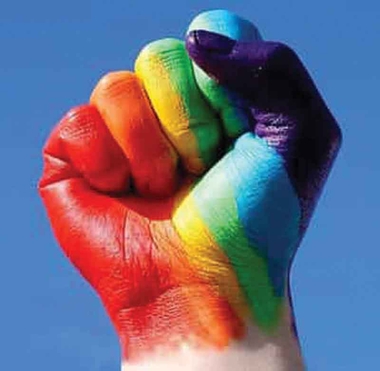What it all means

by Troy Stevenson
Op-Ed
Constantly, the LGBTQ community sees our dignity utilized as political artillery in a culture war between factions that see us as leverage points and rhetorical fodder, rather than human beings with feelings and emotions.
We know the facts about elevated rates of self-harm, suicide, depression, substance abuse, self-destructive behavior and all the horrors that come with being marginalized by politicians, crusaders, zealots, and society at large. We have seen the cold data; however, the question remains, what does it all mean?
What does it do to the 10-year-old trans girl trying to figure out who she is, yet forced to endure overwhelming fear of being outed for simply using the restroom?
What must it feel like be to the lesbian high school softball player, taunted for coming out and being socially isolated between the four walls of the school that has been her whole world?
What psychological damage is done to youth forced into torture under the guise of so-called “conversion therapy?”
What strength of character does it take for the gay college student scarred by a rape he couldn’t report without facing the indignity of hearing, “you can’t rape the willing?” Not only by the authorities, but also by a community that is meant to protect them. They walk the streets day in and day out with a nightmare known only to them.
The sad cold truth is that fear, judgment and hate are internalized. We develop a sense of self-loathing, self-destruction and a tendency to do as much harm to one another as is thrust upon us by outsiders. All derived from a necessity for self-preservation.
The reality is that we aren’t born with the natural unity afforded to other minorities. Family members, neighbors, and generational cohorts that share the burden of bias and discrimination surround communities of color, minority faith communities, and other marginalized peoples.
We come to this understanding alone. We internalize bias before we even understand it.
Unlike other groups we hear the things that “would never be said to our face” at our own kitchen tables, in our schools, in church and everyplace we inhabit. We are the invisible minority.
When asked why we face higher levels of suicide and self-harm, higher incidences of alcoholism or substance abuse, what should really be asked is, “why do we call our unity Pride?”
Queer folks exude outward joy, bright colors, sass and a sense of familial connection that is found in few other communities.
In all honestly, we are proud that we survived. We are proud we overcame the solitude, uncertainty, fear and confusion of coming into our own, alone; of coming out of our closets of shame and accepting the unknown.
We are proud because we have found each other; we have found the rainbow on the other side of the darkness we thought was our existence.
We have not overcome our trauma - and many never will - but we have turned the smile that was our mask into the Pride that sustains us.
In unity, our smiles become real, our pain becomes duller and our sense of hopelessness becomes a little less frightening. There will be a generation that doesn't need Pride to survive, but we aren't there yet; we aren't even close.
What it all means is that with community, our power is certain, our solidarity is unparalleled and our goal is righteous. As long as society at-large makes us "the other" our power to protect each other lies not in politics but in community; real community.
We must quit looking at self-preservation and start fighting to assure the next generation doesn’t suffer these same indignities. Until we learn to truly love one another, we will continue to survive rather than thrive.
Copyright The Gayly – November 9, 2017 @ 7:10 a.m. CST.





